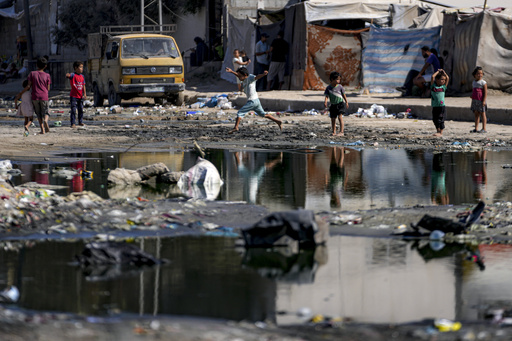In Gaza, as the new school year begins, many children are unable to return to classrooms due to the ongoing conflict with Israel. Instead of attending school, children are assisting their families in efforts to survive amidst the devastation caused by the conflict. This lack of education not only impacts their cognitive development but also puts them at risk of engaging in work at a young age or early marriage, according to UNICEF.
The prolonged absence of schooling in Gaza is a cause for concern as most of the region’s 625,000 school-age children have missed almost a full year of education due to the conflict. With over 90% of school buildings damaged as a result of Israeli bombardment, the prospects of resuming classes remain uncertain. Gaza’s universities have also been severely affected, further limiting educational opportunities for children.
Families, like the Qudeh family, have been displaced from their homes, now living in tent cities lacking basic amenities. Children are forced to work to help their families survive, collecting rubble from destroyed buildings to sell for construction purposes. Despite efforts by aid organizations to provide educational alternatives, such initiatives face challenges in securing necessary supplies and resources.
The conflict has not only disrupted education but also brought about a humanitarian crisis in Gaza, with widespread malnutrition and diseases spreading. Children are among the most affected by the ongoing violence, with the majority requiring psychosocial support. The situation in Gaza highlights the dire impact of the conflict on children’s well-being and their future prospects.
As the conflict persists, parents and children in Gaza yearn for a return to normalcy, with education being a top priority. The emotional toll on children, compounded by displacement and trauma from the conflict, underscores the urgency of addressing the educational needs of Gaza’s youth. Despite the challenges faced, there are efforts to provide temporary learning centers and activities to support children’s emotional well-being during this tumultuous time.
